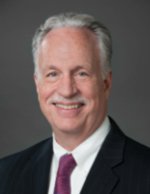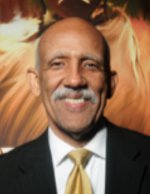ABOUT THE TALENT: Characteristics
Persistent Interest
A wide range of people ages 50 to 70 have strong interest and commitment to encores, as revealed in Encore.org’s 2014 research.
- People interested in encores are diverse with different educational levels, socioeconomic backgrounds, interests, skill sets – and vastly varied experience. They share a common goal: They want to use their experience to make an impact.
- Encore interest is steady and persistent. People considering encores say they seek new challenges and want to redefine their identities through social-impact contributions. In general, people planning encores expect to spend 5 to 14 years doing this new work – often, longer than the 6-year median job tenure of the U.S. workforce. Of those already in encores, about a third (34 percent) have worked in their encore roles for at least a decade.
Education Levels
People in encore roles span the gamut of educational attainment:
- Four-year degrees or masters’ or higher level credentials 38%
- Earned an associate’s degree, professional certificate or license 16%
- Attended some college 26%
- Completed high school or equivalent, no college 19%
For-Profit Experience
Only about 10 percent of the U.S. workforce is employed in the nonprofit sector (Bureau of Labor Statistics). That means that most workers — 90 percent — are employed outside of the nonprofit sector. This is a deep reservoir of talent with transferable skills.
Encore Talent in Action
From attorney to nonprofit development director
After 30 years as a successful attorney, Ruth Sovronsky now combines her passion for music with the relationship-building and analytical skills she honed in her legal practice.
Ruth Sovronsky, Director of Development, Hartford Symphony Orchestra: “As an attorney, and now as a development director, I am using similar skill sets, for example: helping people to commit to a shared vision, negotiation, learning how to actively listen, being comfortable speaking in front of large and small groups, learning subject matter quickly and carefully preparing for any discussion or conversation.”
 David Fay, President and CEO, Hartford Symphony Orchestra: “Ruth came to us with strong development experience. However, she also possessed related skills and experience that made her quite suitable for the job with the HSO. She is a musician herself. She has family members in orchestras. She has a passion for orchestral and classical music. Her law background and writing skills also distinguished her from other candidates. Her analytical capabilities were clear. So many factors played into our choice.”
David Fay, President and CEO, Hartford Symphony Orchestra: “Ruth came to us with strong development experience. However, she also possessed related skills and experience that made her quite suitable for the job with the HSO. She is a musician herself. She has family members in orchestras. She has a passion for orchestral and classical music. Her law background and writing skills also distinguished her from other candidates. Her analytical capabilities were clear. So many factors played into our choice.”
Nonprofit Experience
Nonprofit employees are also looking for encores. Many nonprofit executives want to continue meaningful work but in roles with more flexibility and different responsibility, according to The New Lifecycle of Work, a 2012 report by the Building Movement Project, Encore.org and Clohesy Consulting. Encore roles include paid and unpaid work as consultants (82 percent), board members (66 percent), activism (66 percent), working for a different nonprofit (52 percent) and taking a different role in their current nonprofit (27 percent).
Encore Talent in Action
From nonprofit executive director to social entrepreneur
Paul Hill spent spent 33 years building East End Neighborhood House, a large neighborhood organization in Cleveland, into a thriving community organization. Instead of retiring, he founded the National Rites of Passage Institute that takes an African-centered approach to help people transition from one life stage to the next – child, adolescent, adult and elder.
 Paul Hill, Jr. Founder, National Rites of Passage Institute: “That has been very important, the legacy of those who came before, and of my family in their contributions for the living and yet unborn. I see myself as ‘Guardian of the Generations’ – an important role in this season of my life. May the circle go unbroken.”
Paul Hill, Jr. Founder, National Rites of Passage Institute: “That has been very important, the legacy of those who came before, and of my family in their contributions for the living and yet unborn. I see myself as ‘Guardian of the Generations’ – an important role in this season of my life. May the circle go unbroken.”
Encore Motivations
People interested in encores are motivated by many factors, including making an impact, legacy and accomplishments.
- Gives me a feeling of pride in myself and in my work 90%
- Gives me personal satisfaction 89%
- Provides . . . an interesting life 87%
- Gives me a chance to use and demonstrate my skills 87%
- Helps me feel worthwhile 86%
- Allows me to pass my knowledge to the next generation 78%
Anne Danaher, Executive Director, Jewish Family Services of Greater Hartford:
“A person with corporate experience can support our nonprofit work, as they typically are able to work with deadlines, move projects forward, have strong organizational skills overall and understand the need for an organization to keep moving forward toward growth. I think many corporate-culture skills are transferable and enhance the nonprofit operation.”
FEATURED RESOURCES
These Building Movement Project articles identify encore roles for nonprofit leaders:
Age at Encore Transition
People in encores transition at various ages, and expect to spend 5 to 14 years in their encores.

For-profit employers also recruit experienced adults
- Global finance company Barclays’ new apprentice program engages people 50+.
- Goldman Sachs’ returnment program brings experienced people back into the workplace.

